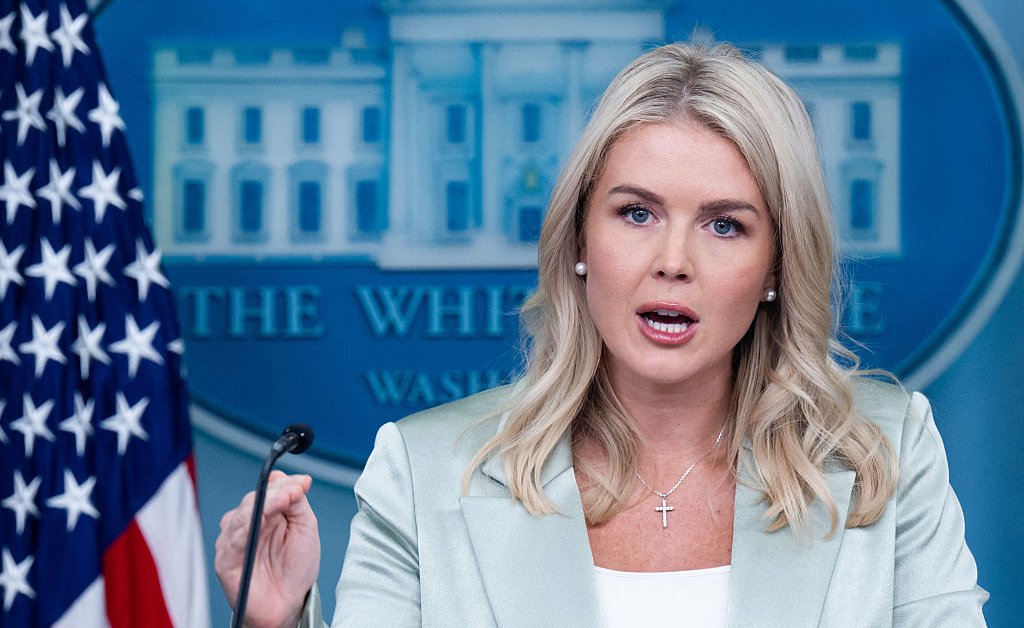This article discusses, in detail, the series finale of And Just Like That.
And just like that, after 27 years, the Carrie Bradshaw saga is over. It ended, on Thursday, not with a bang, of the figurative sort that was once a Sex and the City staple, but with what might as well have been a yogurt commercial. In the final moments of And Just Like That, between last looks at each of the show’s other characters, Sarah Jessica Parker’s Carrie returns home from Miranda’s (Cynthia Nixon) disastrous Thanksgiving feast. She cues up Barry White’s “You’re the First, the Last, My Everything” on the karaoke machine she never wanted, a relic of a different bad party. She eats pie straight from the tin. She rewrites the opening line of her novel’s epilogue: “The woman realized she was not alone – she was on her own.” (Of course Carrie doesn’t know how to type an em-dash.) Then she dances around her house in her Bradshawcore scarlet tulle-and-sequin ensemble, arms lifted above her head. Substitute a plastic tub of fruit–flavored goo for the pie, and we are in Yoplait territory.
This glib, rushed moment puts an unearned exclamation point at the end of a glib, rushed episode that ties up AJLT’s glib, rushed final Carrie storyline. (I guess you could argue that glib and rushed are exactly the qualities we should expect from a show titled And Just Like That.) After realizing that her second great love, Aidan (John Corbett), would never really trust her and bidding farewell to literary dreamboat Duncan (Jonathan Cake), our widowed, erstwhile-sex-columnist heroine abandons her search for love and—deep sigh—chooses herself. It was an ending that immediately made me think of Kim Cattrall’s much-missed Samantha Jones, the SATC character whose joyous independence and insatiable libido made that show so much fun. For treating something she’s always known like some kind of hard-won revelation, then cutting away forever, Samantha truly would have hated this finale.

To be fair, the episode, titled “Party of One,” wasn’t all bad. I was glad that Miranda, whose transformation from cynical, heteropessimist, workaholic corporate lawyer to wide-eyed, lesbian human-rights crusader was too often played for derisive laughs by showrunner Michael Patrick King, finally saw her devotion to Joy—her first decent love interest—reciprocated. Charlotte (Kristin Davis) and Harry’s (Evan Handler) dorkily sweet rapport has been a highlight of the show, so it was nice to see him get his mojo back post-prostate cancer treatment. (That the couple’s teenage daughter seemed delighted by the idea of her parents getting busy in the bedroom was, however, a bit much.)
I don’t think it was necessary to test Carrie’s single-girl resolve by throwing Charlotte’s thrice-divorced, jet-owning boss, Mark (Victor Garber), a character I’d forgotten, into the mix at Miranda’s Thanksgiving. Nor did I really need to see everything that came out of the overflowing toilet that ended his pursuit of Carrie. But it was gratifying to witness, for once, a male character not named Steve having the kind of embarrassing moment we’ve seen the women of SATC endure over and over in the course of courting (mostly) men. I also thought it was clever, after Season 2 ended with Carrie’s magical “last supper” in her old apartment, to end AJLT with a truly terrible dinner party.

About that party, though: Was that really supposed to be the whole payoff of the Brady-gets-a-girl-pregnant storyline—that meddlesome Miranda ruins her own Thanksgiving by inviting his deeply unpleasant baby mama and rude friends? The mockery of Mia’s (Ella Stiller) two queer-coded pals, one a dairy-sensitive toilet clogger named Epcot (Spike Einbinder) and the other (Paulo Hernandez-Farella) blithely voguing in the living room, felt like gratuitous Gen Z bashing. I also thought it was kind of ridiculous to devote so much time in a series finale to random characters.
Even more frustrating were the blandly positive resolutions handed out to characters we actually did care about—some of whom have been part of viewers’ lives since the ’90s. After spending much of the season dithering about marriage and tormented by Patti LuPone’s nightmare matriarch, Anthony (Mario Cantone) and Giuseppe (Sebastiano Pigazzi) reconcile (with a pie playfully splattered in Anthony’s face). After seeing their marriage tested by his election loss and her attraction to her editor, Lisa (Nicole Ari Parker) and Herbert (Christopher Jackson) reconcile (with him gratefully doing the Thanksgiving dishes). After despairing over her younger boyfriend Adam’s (Logan Marshall-Green) resistance to marriage, Seema (Sarita Chaudhury) is last seen surrounded by his friends, claiming, quite uncharacteristically, to enjoy gluten-free pie. It took so long for Seema and LTW to feel like full cast members, and this is how thoughtlessly they’re dispatched? Another non sequitur is our last glimpse of the York-Goldenblatts, in which their nonbinary child Rock puts to rest Charlotte’s guilt over how much she enjoyed the sight of Rock (Alexa Swinton) in a dress in a school musical. “I’m gonna be a lot of people in my life,” they assure their mom. Which raises the question of whether Rock’s gender was supposed to be Charlotte’s defining issue.

Can’t you just picture Samantha shaking her head at the inanity of not just the Band-Aids King slaps on these problems in AJLT’s closing montage, but of so many of the problems themselves? How tiresome monogamy, married or otherwise, always seemed to her. It was a perspective SATC’s group of navel-gazing, overanalysis-prone girlfriends sorely needed. Not that Samantha wasn’t self-involved. But if a man ever stopped enhancing her existence, she didn’t catastrophize; she moved on. For Samantha, life was less about finding security or preventing loneliness or fusing her soul with that of another person than it was about the pursuit of pleasure in all things—personal, professional, sexual. She didn’t need some guy to keep her entertained. She saw no reason to make romance her be-all, end-all when her friendships gave her all the love she needed. Which is to say that, like approximately zero other women in the history of the romance genre, she understood herself to be a complete, sovereign human being.
It took three decades, nine seasons’ worth of two different series, and a pair of excruciating movies for Carrie to so much as approach the place where Samantha started. “I have to stop thinking maybe a man and start accepting maybe just me,” Carrie tells Charlotte. “It’s not a tragedy.” This decision throws Carrie’s flimsiness, as the lead character of a franchise three generations of women have absorbed into their own identities, into relief. I laughed out loud when, in the finale, she instructed Adam to make her garden “more wild, free… something more me.” Because, well, is she those things? Was she ever? Outside of her dual obsessions, with relationships and shoes, what defines her? We know what makes a Charlotte (traditionalism), a Miranda (ambition), and certainly a Samantha. But when you take away the wardrobe, the laptop, the love triangle, Carrie becomes as much a cipher as the nameless woman in her book.

Maybe that’s intentional on King’s part; maybe Carrie was always a screen for viewers to project our aspirations and insecurities on. Or hey, maybe SATC’s Manhattan was a single woman’s version of the island in Lost—a transitional place the characters had to return to in AJLT because they’d yet to have the epiphany that would liberate them from the tyranny of romance. Having long since achieved that enlightenment, Samantha got to ascend (i.e., move to London. This is not a perfect metaphor!) Now, here comes Carrie. Charlotte will die on this imaginary island of marriage-oriented women; its denizens will worship at her grave. To really belabor the Lost analogy, Miranda’s queerness has unlocked a whole different, parallel-universe island.
At the end of an initially fun final season that petered out in a series of short, insubstantial episodes around the time Aidan exited, it’s a shame we’re saying goodbye to Carrie just when she’s positioned to gain some depth. If I may presume to speak for Ms. Jones, I figure she’d be disappointed, too, that her friend’s story is ending right when it could really begin. Watch “Party of One” carefully and you’ll notice the closing image isn’t yogurt-ad Carrie. It’s a mirror in her hallway, reflecting the expensive, empty home that she never got around to making her own.








